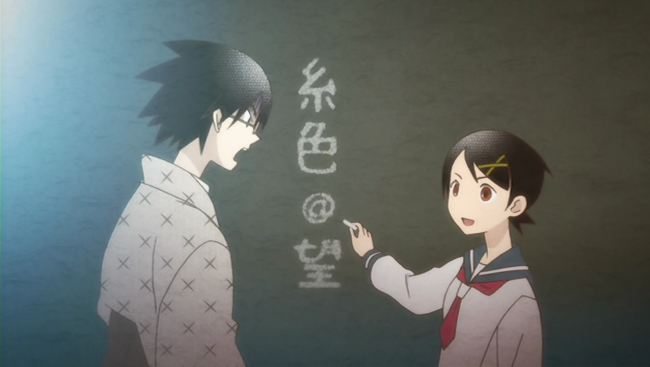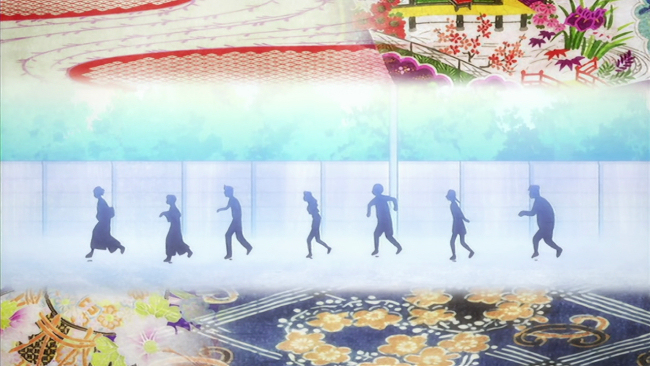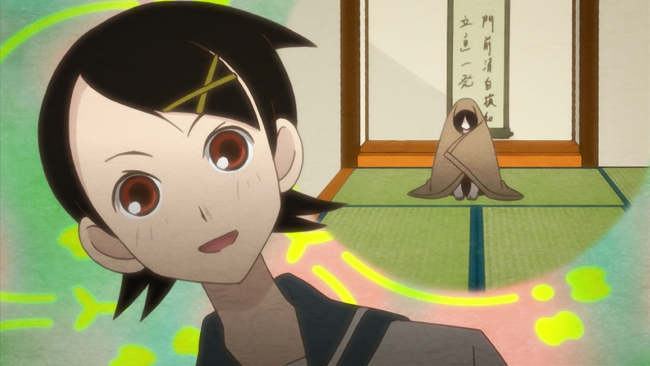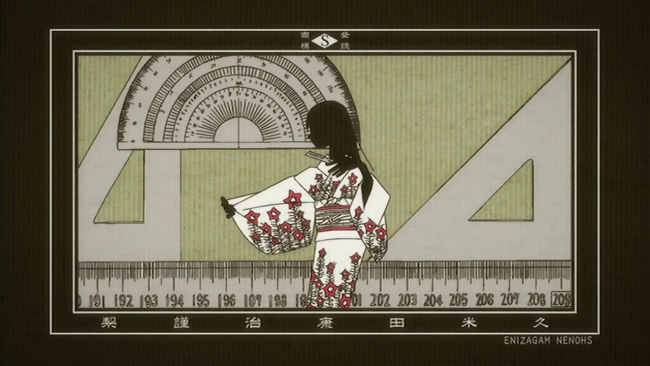Optimism is Despair

I realised recently the sensei America needs right now is Zetsubou Sensei (Zetsubou meaning "despair"). Sayonara, Zetsubou-Sensei (さよなら絶望先生) was a manga that ran from 2005 to 2012 which was turned into an anime series with three seasons, airing from 2007 to 2010. The anime never saw an official release in the U.S. possibly because it was never a very mainstream success in Japan and its humour may have been deemed too reliant on Japanese politics and media. But watching the first episode again to-day, with its focus on the madness inherent in aggressively imposed interpretation, I can't think of anything that more accurately reflects the American psyche.

I always thought the fundamental conflict between the series' two central protagonists was genius. There are two principle layers to it--on the most superficial layer, Itoshiki-Sensei (Hiroshi Kamiya) is a high school teacher who interprets everything in the most negative way possible and his student, Kafuka (Ai Nonaka), named after Franz Kafka, interprets everything in the most positive way possible. Itoshiki is always trying to commit suicide and Kafuka is always coming up with reasons why there's still hope and life is worth living. But the first scene of the first episode quickly establishes the sinister second layer--Kafuka's rationalisations are so paper thin that they only serve to underline the negative reality. Her choosing to interpret her parents' attempts to hang themselves as attempts to make themselves grow taller only serves to compel the mind to contemplate suicide as the end point of the puzzle Kafuka's madness presents. Kafuka's positive interpretations act as a sort of funnel drawing the mind to a deeper despair.

Itoshiki's negative interpretations are often similarly ridiculous. He talks to the school councillor about his belief that his credit card info is being stolen every time he swipes his subway card, he talks about how the symbol on a baseball cap resembles the kanji for "hair" making it sad that the man wearing the hat is bald. He tells the councillor he feels better after talking about these things. Whenever Kafuka's attempts to save his life inevitably threaten his life worse than his actual suicide attempt, he always says, "What if I had died?" His compulsions to view things negatively are so patently irrational there's no rational solution to them on their own terms--the reality is that they're a form of catharsis for him. He subverts a typical assignment where a teacher asks the students to list a series of hopes for the future by asking them to list only goals they despair of accomplishing. By hitting the negative potential pre-emptively, he can mitigate some of the pain. But the flaw in this technique is highlighted by how Kafuka serves as his foil.

As fiction in the U.S. becomes increasingly focused on alternate interpretations and what these interpretations suggest about the interpretor, Sayonara, Zetsubou-Sensei is well ahead of us. Now that the U.S. has a cruel, post-modernist joke occupying the office of president, madness has become the reality so it's become mad to adhere to prior forms of realism. We can try to find solutions by setting up large, negative interpretations, conduct witch hunts with no foreseeable rational solutions under the delusion that by keeping busy we're making a form of progress. Or we can subscribe to superstitions, like Kafuka interprets a hikikomori (shut-in) student as being a Zashiki Warashi, a household spirit, because a psychological condition like that of the hikikomori couldn't possibly exist within Kafuka's social circle.

Just as Trump can deny global warming by talking about extremely cold temperatures despite scientists having said that climate change could result in colder winters. It's not that people don't have the capacity to understand the more complicated reality behind the name "global warming", it's that Trump and others rely on the superficiality of words themselves to create the perceived reality. A version of reality so paper thin it only highlights how bad things really are.

There are many flavours of madness and so Itoshiki sensei has an entire classroom of students, each with his or her own method of altering reality. Chiri (Marina Inoue) demands strict, measurable reality so when she's decided to slice a cake to evenly divide it among classmates she loses herself in increasingly complex computations as more students enter the room. Meru (various voice actresses) is typically too shy to speak but frequently spreads abusive e-mails and online comments. Each student in his or her way tries the limits of Itoshiki's negative outlook. Sometimes the humour on the show falls flat but for the most part it's become more and more insightful as time has gone by.